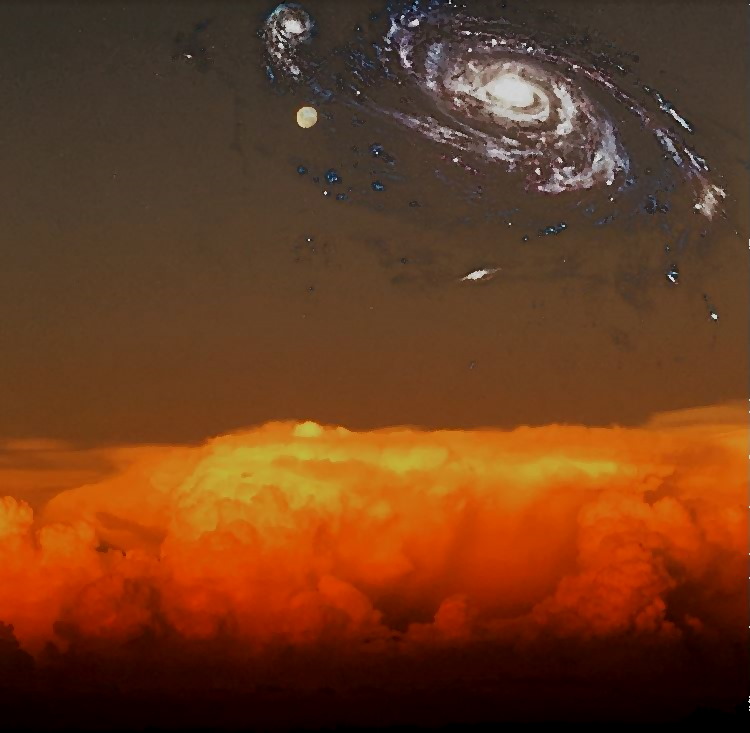
A Shield
Self Sufficiency is the state of feeling secure and complete in one’s self. While Self Reliance is complete acceptance of one’s abilities and limitations and being able to regulate one’s response to emotions self-sufficiency is feeling “good” about yourself. More so it is about being in control and balanced. To be in a state of self-sufficiency is to experience mental, physical, emotional and spiritual well-being and a feeling of “completeness” and wholeness.
Imagine Yoda and Obi-wan Kenobi when they were confronted by their arch rivals Darth Sidious and Darth Vader. Did they seem perturbed, were they upset or visibly afraid? Did self-doubt cloud their judgement and affect their actions? Both Jedi Masters demonstrated a high degree of self-sufficiency. Faced with insurmountable odds they did not flinch. Even insulted and berated by their opponents they refused to let it affect their actions giving up neither to passion nor anger. They refused to lose control. Jedi had strong self-sufficiency, it was the shield that protected them.
Anakin on the other hand had weak self-sufficiency and was sensitive to assaults on his character or perceived slights to his honour and values. Luke Skywalker also faced an internal crisis that reflected a sensitive character and lack of self-sufficiency. Luke was easily roused to anger and jealousy as was his father particularly over matters of the heart. Over time Luke became more accepting of himself and sure in his decisions and actions thanks mainly to his Jedi training.
“There is no passion; there is serenity” – Jedi Code
Heart on a Sleeve
Alcoholics are sensitive people, we take everything personally. I have often been told that I wear my heart on my sleeve and true to that I have often proved them right. Unfortunately my alcoholism never helped me in regulating my emotional response to perceived injustices or even trivial slights. With a family heritage that originated deep in the mountains of the Balkan powder keg it seemed my genes did not favor me either. I would often lose my temper over the slightest of insults or loss of control.
Alcoholics are often control freaks by nature, we need to be in order to feed our addiction, unfortunately that trait and the emotional toll of not getting our way seems to cross over in to all aspects of our lives. We alkies get “butt hurt” easily.
Self Defense
Self-sufficiency is being able to handle rejection well, it is also being able to let an insult slide without even a blink. If we find ourselves in a situation where our character or integrity is attacked we do not feel the need to react with defiance and attack in return. We can shrug off verbal and physical assaults and quickly forget them. We harbour no grudges. Resentments and self-pity born of damaged pride is not for us. This does not mean that we are everyone’s door mat either, far from it. Strong self-sufficiency means being able to defend one’s self in a calm and collected manner without feeling the need to defend one’s honour or pride at the same time. Self-defence means protecting our physical self from harm and setting boundaries on the actions of others, it is not about seeking punishment or taking revenge.
Nothing to Prove
Self-sufficiency is also not requiring constant validation from others. I know people who live for attention. They always have something to prove to others. If they post something on social media and don’t get the requisite set of likes they expect they act confused and hurt. They must always be the centre of attention and anything less than public adulation reduces their self-esteem. If we want to be validated we validate ourselves by working harder and striving to be a better person every day. We do not need the praise of others to feel good about ourselves. Praise and ridicule are the sides of the same coin to us and neither mean anything in the long run.
In Balance
Having self-sufficiency means having complete internal balance and sense of control. It is not about being an unemotional machine that feels nothing like a rock. Self-trust and resilience are synonymous with self-sufficiency. We are able to make our own decisions without being swayed by others. Opinions can be formed without defaulting to the latest collective mind-set on a particular issue. We can trust in our judgements and stick by them if challenged.
Being authentic means being yourself, not someone you imagine other people will like better or accept more readily. For decades I tried to be someone else and it only bought me depression and a lack of identity. Even know I am still working out who I am.
Open and Honest
Most of all we appreciate honesty, we want people to tell us what they think and to be truthful with us even if we might not like what we hear. Being self-sufficient means being able to acknowledge the opinions of others, especially those about ourselves without allowing it to damage our self-esteem or balance. We listen to others and we accept the truth when we hear it.
Self-sufficient people enjoy time alone but are not loners. They also enjoy the company of others and are engaged in life rather than isolated from it. We may be preoccupied with our own problems but we also preoccupy ourselves with others. Empathy with others and connection to community are important to those with strong self-sufficiency.
People not Things
Material possession and status are not as important to people with strong self-sufficiency. We do not need possessions to compensate for deficiencies or to prove to others our worth. We may enjoy and appreciate nice things but we are not reliant on them. A nice car, house, designer clothes and shoes and excess cash do not define us or even impress us. We believe that rank and status are earned and not granted out of entitlement however titles do not bother us, we know who we are and what we’ve done. Medals and awards are graciously accepted when earned but rarely worn.
Practice Self-sufficiency
Some people think that being self-sufficient is in some ways being cold and unemotional or stoical. The Jedi were none of these things and being sober is not the dull, boring and somber existence that many imagine. The Stoics themselves were similar to Jedi, they were entirely self-sufficient and were able to achieve a strong emotional, mental and spiritual balance in their lives. Stoicism is still practiced today and strongly influences Cognitive Behavioral Therapy used to treat acute low self-esteem and mild depression. Here are some practices that can be used to improve self-sufficiency:
Reframe the situation:
Have you ever been dumped by a girlfriend / boyfriend? Did you ever get fired from your job? Perhaps both happened in a single week. How did it feel? If you felt terrible about it for a long period or too it worse than you now feel was appropriate now it is probably because your emotional response to the event upset you more than the event did. Later on you meet someone and land a job that fits you far better and you wonder why you were upset all along. The belief that you would never find another love or find a suitable job proved to be irrational and false. If you were to reframe the situation to something like “I’ve been dumped but I’ll be alright and will meet someone new” and “that job paid the bills but it was clearly not meant to last, something better will turn up”, you will find that the emotions tied to the situation are not as acute and consequently you won’t take it as bad.
Change what you can, accept what you can’t:
The serenity prayer is read at AA meetings for a reason; it reminds those in recovery that acceptance and action are hand in hand. We must take action where we have control in our lives and we must be prepared to accept that there is much which happens in life which we have no control. It is worthwhile asking the following questions when confronted with a challenge or problem in your life:
- What aspects do I have control over?
- What do I have come but not all control over?
- What areas do I have no control over at all?
For example, if you lose your job you have no control over that. You can try to get the company to reverse their decision. Failing that you can put a positive spin on it and spend time tidying up your resume. You can get out and start job hunting. Being unemployed can be hard but being sad and miserable about being unemployed is a choice. It is better to accept the loss of the job and get busy finding another one rather than staying passive and impotent by wasting time in denial and regret.
Pick you Role Model:
My role model is Ob-wan Kenobi. When I find myself in a difficult situation or I need to inspiration in the best way to achieve a desired outcome I consider how someone with the presence of mind, skill and self-discipline like Obi-wan Kenobi would have handled it. Obi-wan is not a real person, I cannot use him as an actual mentor. Fortunately many of us have access to mentors and in the 12 Step program we can approach a potential sponsor to help guide us. In the Jedi community a dedicated mentor is important in guiding those seeking to learn the philosophy of being Jedi.
Set Daily rituals:
The Stoics used daily rituals to centre themselves. In the morning they would take time to plan their day, they would “welcome the day” by observing or imagining the rising sun. They would consider all the hardships and challenges they could expect to face. These are handy practices. In addition to those I also remind myself of something to be grateful for. During the day I do spot checks to assess my mental and emotional state. In the evening I consider the day’s events and assess my conduct noting opportunities for improvement. Meditation and daily readings are also an integral part of my daily routine as is exercise.
Self-reliance and Self-sufficiency are two of the greatest assets a person can possess. Not only will it make you more resilient and adaptable to life it will also improve emotional, mental, physical and spiritual well-being. An owner of a major company commanding billions of dollars’ worth of assets and having a vast personal wealth may actually be poor if she lacks self-reliance and self-sufficiency. Life is no more than a hollow and meaningless existence compared to the peasant who is both self-reliant and self-sufficient. All of the things we own or control are transitory and impermanent, they have no intrinsic value. To be in command of one’s own emotions and to be the master of one’s own life, on the other hand, is a treasure far greater than a mountain of Gold. Therein lies true serenity.



